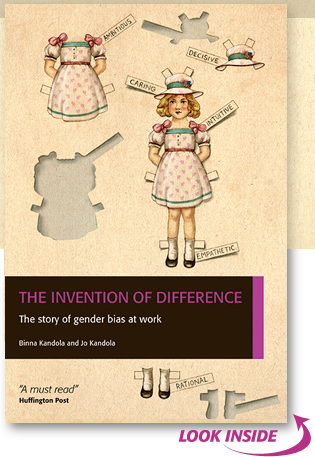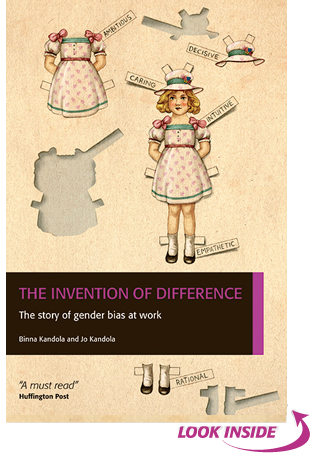Why do women still struggle to get the top jobs and be paid fairly? In their new book, The Invention of Difference psychologists Professor Binna Kandola and Jo Kandola trace the history of women and work and examine why gender inequality still exists.
The Invention of Difference starts by looking at the different working roles women have held over the centuries – with often surprising results.
Binna Kandola says: “We like to refer to the Yabba Dabba Do! theory – the idea that The Flintstones was a documentary, rather than a cartoon, showing Fred as the hunter-gatherer and Wilma as the nurturer at home. Really, it is unknowable how cavemen and women divided their roles, but we think it is likely they were far more evenly split.
“In fact, up until the industrial revolution, women actually performed a wide range of roles inside and outside the home – for example, in the 13th century, there were female carpenters and masons.”
So the division of labour we see today is relatively new. It was only during the industrial revolution that the idea of a sole male ‘breadwinner’ emerged, and a woman’s role became increasingly idealized and focused on home and family.
Stereotyping of the sexes is still going strong and preventing organisations from achieving diversity in the workplace, the authors argue. Female stereotypes may now be more positive than they once were, but women are generally labeled with traits such as being caring which are not deemed to be as valuable in a business context as ‘masculine’ traits, such as being decisive.
“There is overwhelming evidence that there are no genuine differences between the genders,” says Jo Kandola, “but perpetuating the idea of differences means women are continuing to be held back – particularly when it comes to leadership roles.”
The authors also look at how organisations can take action. “Recognising bias in an organisation – and having the will to change it are both key to eliminating prejudice against women in the workplace,” says Jo. “Challenging bias is everybody’s job, so we need to make it part of everything we do.”
 |
 |













